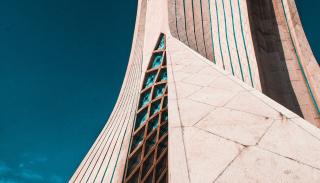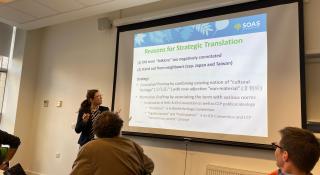
Breadcrumbs navigation
Towards a post-imperial and Global IR?: Revisiting Khatami’s Dialogue among Civilisations
In this short summary video authors Shabnam Holliday and Edward Wastnidge discuss their key arguments from their new Review of International Studies article - ‘Towards a post-imperial and Global IR?: Revisiting Khatami’s Dialogue among Civilisations'.
Want to know more? You can read the full article at DOI: https://doi.org/10.1017/S0260210523000621
This particular article is open access, however BISA members receive access to all articles in RIS (and our other journal European Journal of International Security) as a benefit of membership. To gain access, log in to your BISA account and scroll down to the 'Membership benefits' section. If you're not yet a member join today.
Abstract
This article argues that Dialogue among Civilisations can be put forward as a crucial contribution to debates addressing IR’s Eurocentrism. It highlights the blurring of West/non-West, domestic/international, and imperial/post-imperial bifurcations. This is evident in three ways. First, Dialogue among Civilisations needs to be appreciated in Iran’s wider historical context and its multifaceted intellectual heritages. This demonstrates that the idea of the West as distinctly different from the East is problematic because of engagement between Iran and the so-called West. Second, Khatami’s intellectual endeavours are based on a simultaneous engagement with Western political thought, Islamic philosophy, and the idea of Ancient Iran. Finally, the notion itself reflects an internal dialogue whereby Western civilisation along with Islam and Iran’s pre-Islamic heritages are considered integral to Iranian political culture. Furthermore, it is an aspiration for how post-colonial Muslim societies can engage with colonial power while maintaining a post-colonial authenticity. Our contention is that an in-depth understanding of Iran alongside a revisiting of Khatami’s Dialogue among Civilisations can act as a means of bringing the perspective of the ‘other’ into debates on the international and our epistemological and ontological understanding of the West.
Photo by Sam Moghadam Khamseh on Unsplash


